Stomach Cancer
Stomach cancer, also known as gastric cancer, develops when cells in the inner lining of the stomach grow abnormally and form tumors. Because the early stages often mimic common digestive problems such as acidity, bloating, or indigestion, diagnosis is sometimes delayed. Timely treatment from an experienced specialist can make all the difference in outcomes.
What is Stomach Cancer?
This form of cancer usually starts in the innermost lining of the stomach and can spread into deeper layers or nearby organs if not treated. It is a serious condition but one that can be managed well with surgery and other therapies when detected early.
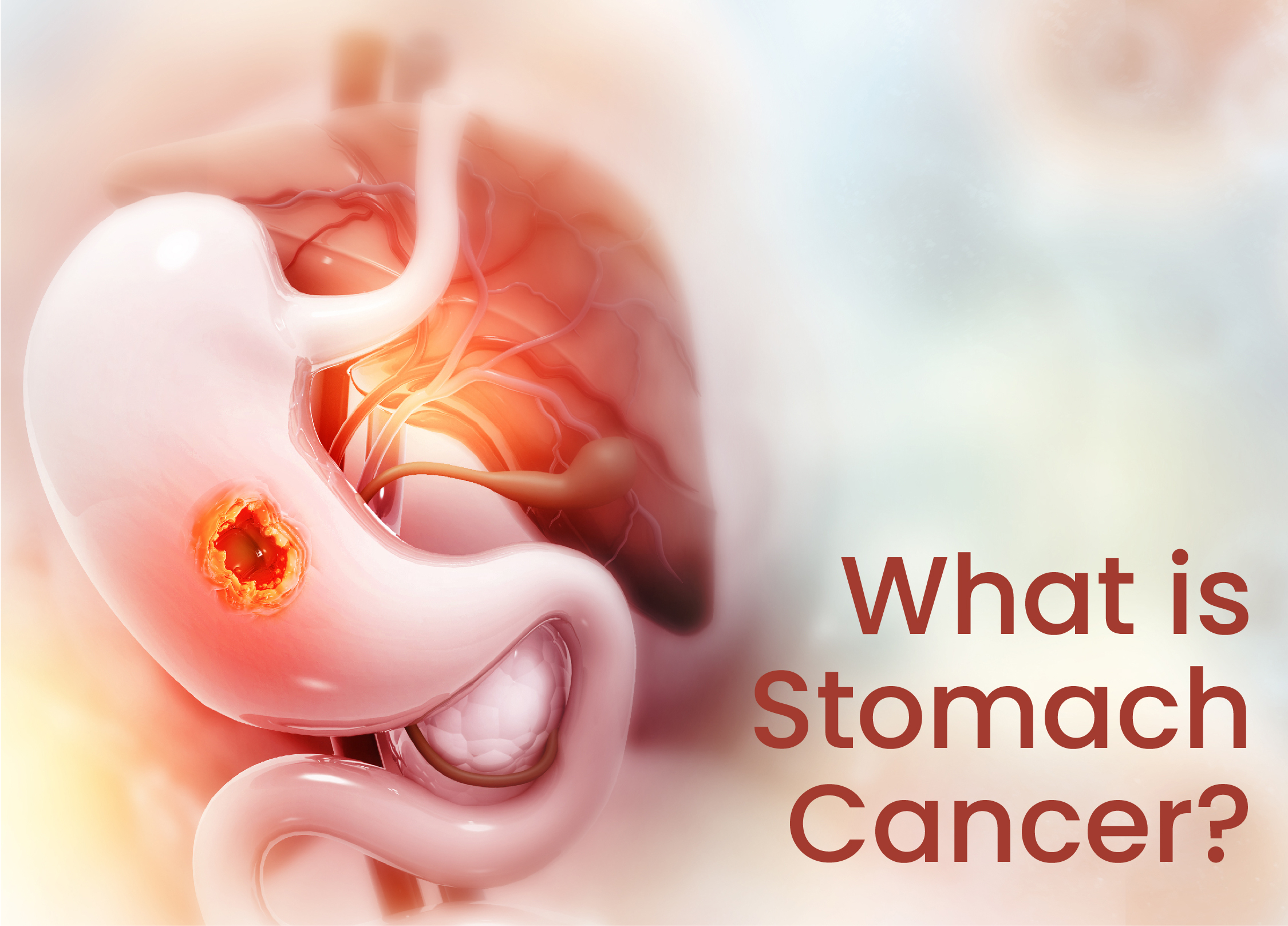
Types of Stomach Cancer
It’s important to be aware of the early signs of breast cancer so that medical help can be sought promptly. Common symptoms include:
- Adenocarcinoma: most common type, accounting for over 90% of cases.
- Gastrointestinal Stromal Tumors (GISTs): Begin in special cells in the stomach wall.
- Lymphomas: Develop from immune system cells located in the stomach lining.
- Carcinoid Tumors: Slow-growing cancers arising from hormone-producing cells.
Each type behaves differently, which is why accurate diagnosis is essential before starting treatment.
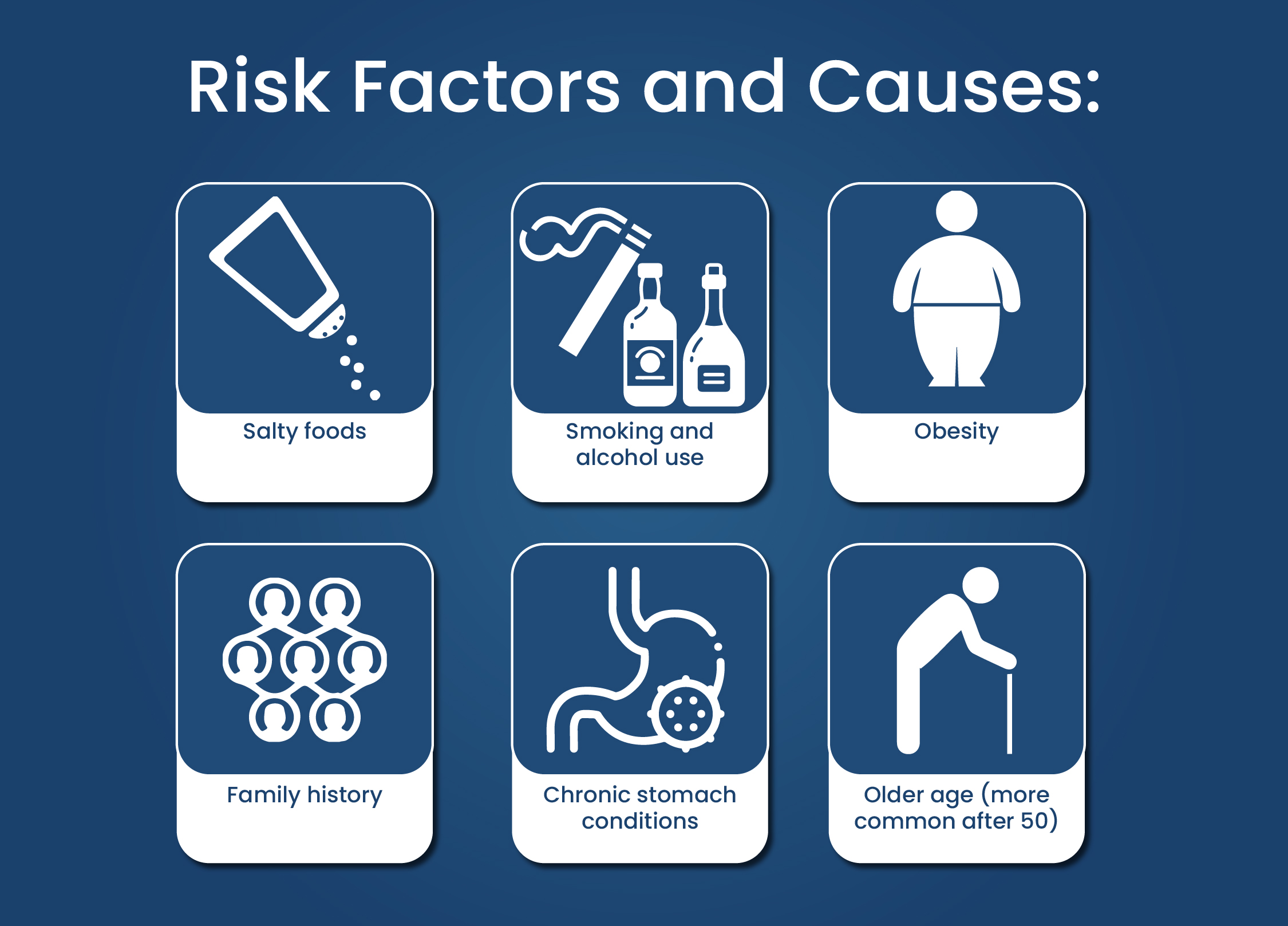
Risk Factors and Causes:
Some people are more likely to develop stomach cancer due to lifestyle, genetics, or existing health conditions.
- Diets high in smoked, pickled, or salty foods
- Smoking and alcohol use
- Obesity and sedentary lifestyle
- Family history of gastric cancer
- Chronic stomach conditions such as ulcers or gastritis
- Older age (more common after 50)
Being aware of these factors helps in taking preventive steps and scheduling timely check-ups.
Warning Signs You Shouldn’t Ignore:
Many early symptoms overlap with harmless digestive issues, which makes stomach cancer tricky to catch. However, persistent signs should raise concern:
- Ongoing indigestion or heartburn
- Feeling full even after small meals
- Sudden, unexplained weight loss
- Loss of appetite or aversion to food
- Stomach discomfort or pain in the upper abdomen
- Nausea, vomiting, or vomiting blood
- Difficulty swallowing
- Black, tarry stools indicating internal bleeding
- Weakness and constant fatigue
If these symptoms persist for weeks, consulting a stomach cancer doctor in Mumbai is highly recommended.
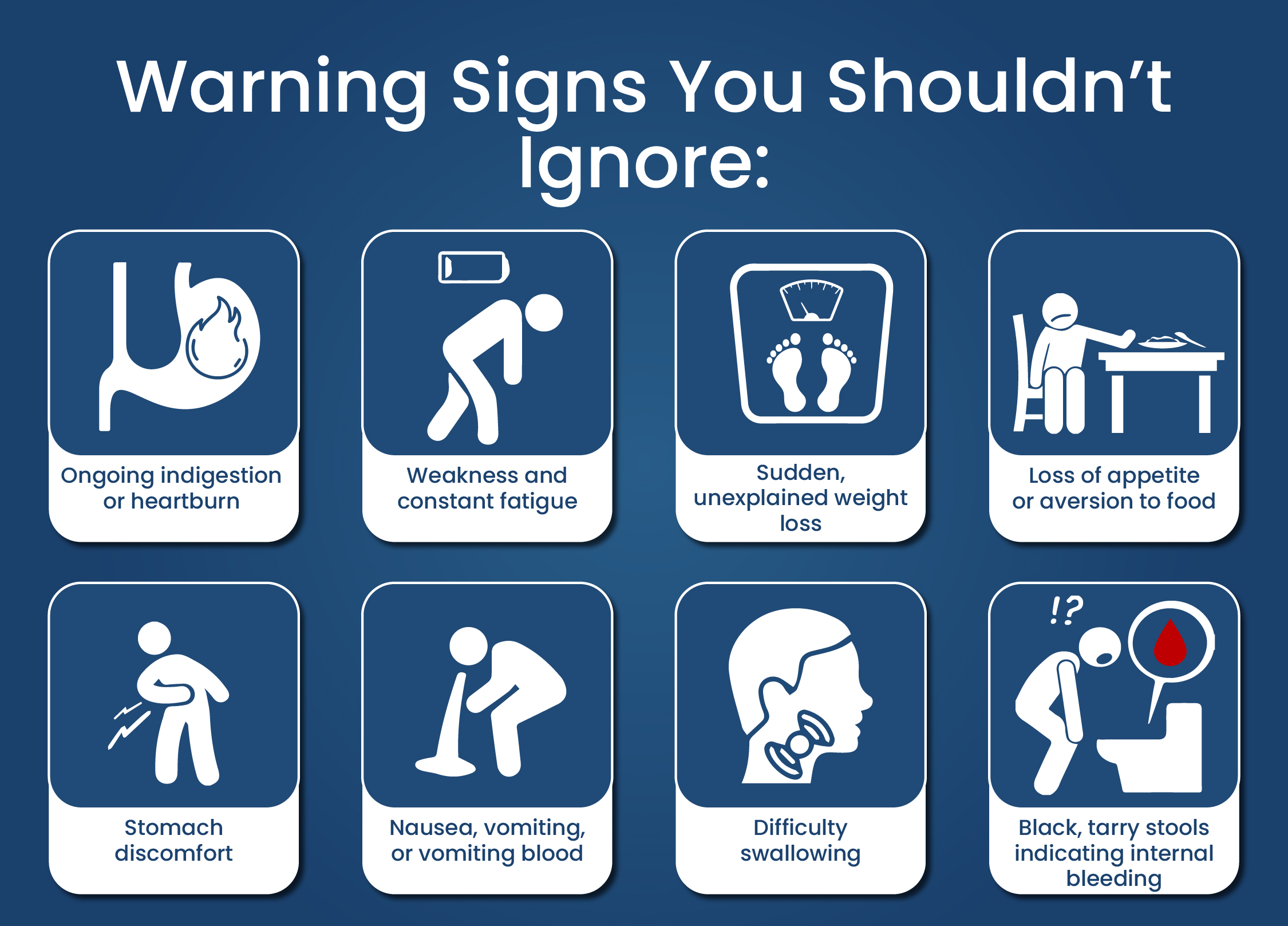
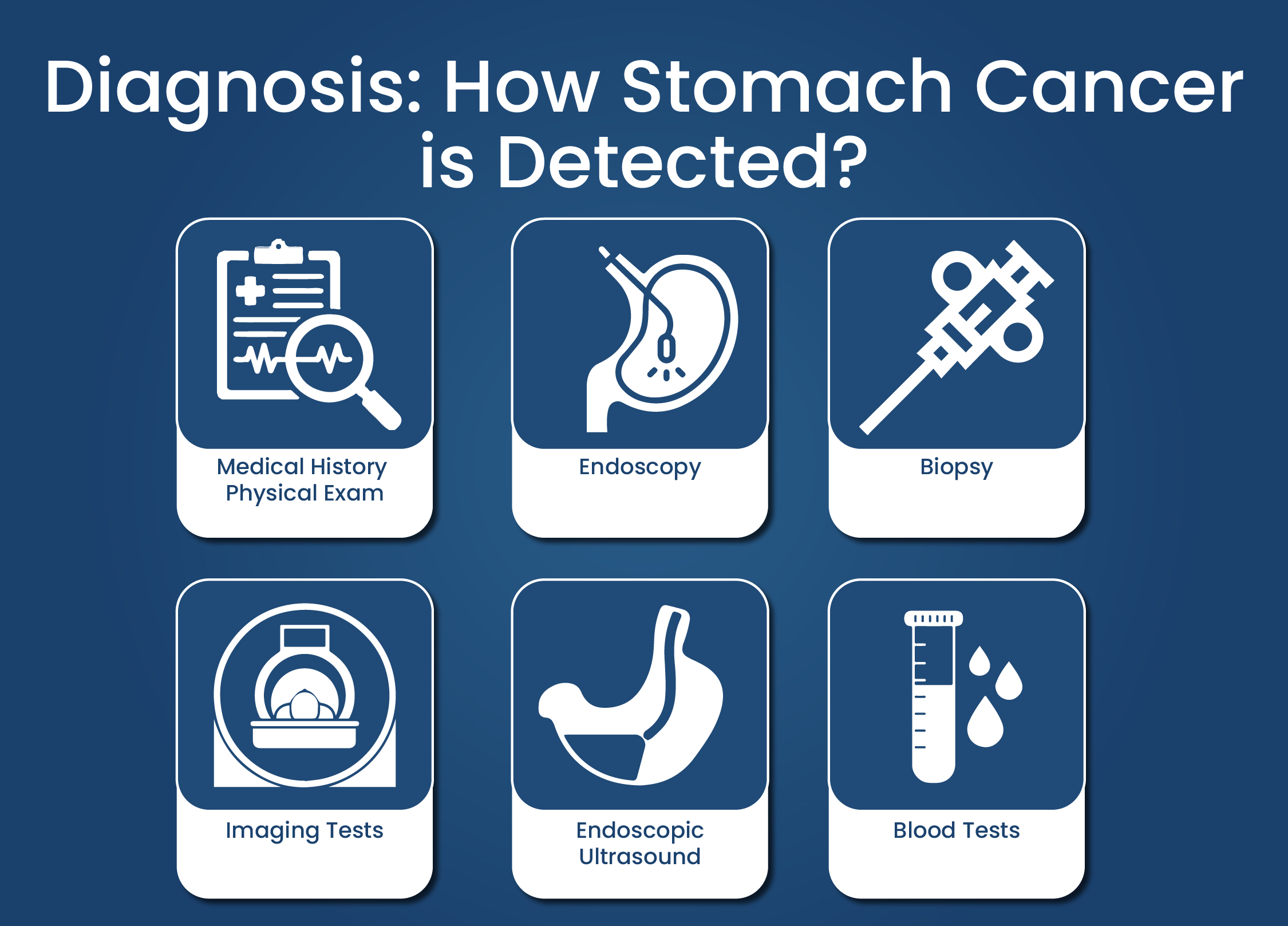
Diagnosis: How Stomach Cancer is Detected?
Accurate and early diagnosis allows for better outcomes. Specialists use a step-by-step approach that includes:
- Medical History & Physical Exam : Understanding symptoms and risk factors.
- Endoscopy : A thin tube with a camera is used to view the stomach lining.
- Biopsy A tissue sample taken during endoscopy confirms cancer cells.
- Imaging Tests CT scans, PET scans, and MRI help evaluate spread.
- Endoscopic Ultrasound Determines the depth of tumor growth and lymph node involvement.
- Blood Tests General health checks and tumor markers for planning treatment.
Treatment Options for Stomach Cancer:
Treatment depends on the type, size, and stage of the cancer as well as the overall health of the patient.
- Surgery:Surgery is the most effective treatment for localized stomach cancer.
- Subtotal Gastrectomy Removes the affected part of the stomach.
- Total Gastrectomy Removes the entire stomach and reconstructs the food passage.
- Minimally Invasive Surgery: Removes the entire stomach and reconstructs the food passage.Laparoscopic or robotic techniques ensure quicker recovery and less post-operative pain.
- Chemotherapy: Drugs are used to destroy cancer cells and are often given in combination with surgery.
- Neoadjuvant chemotherapy (before surgery) shrinks tumors.
- Adjuvant chemotherapy (after surgery) lowers recurrence risk.
- Palliative chemotherapy controls symptoms in advanced stages.
- Radiation Therapy: High-energy rays are used to kill cancer cells or shrink tumors. This is sometimes combined with chemotherapy.
- Targeted Therapy: Advanced drugs that specifically target cancer cells, sparing healthy ones.
- Immunotherapy: Activates the immune system to fight cancer cells, effective in selected cases.
Dr. Sanjay Sharma is a highly respected breast cancer specialist in Mumbai, known for his deep medical expertise and compassionate care. With years of experience in managing complex breast cancer cases, he is recognized as the best breast cancer doctor in Mumbai.
If you or your loved one notice any unusual breast changes or have concerns about breast cancer risk, don’t delay.
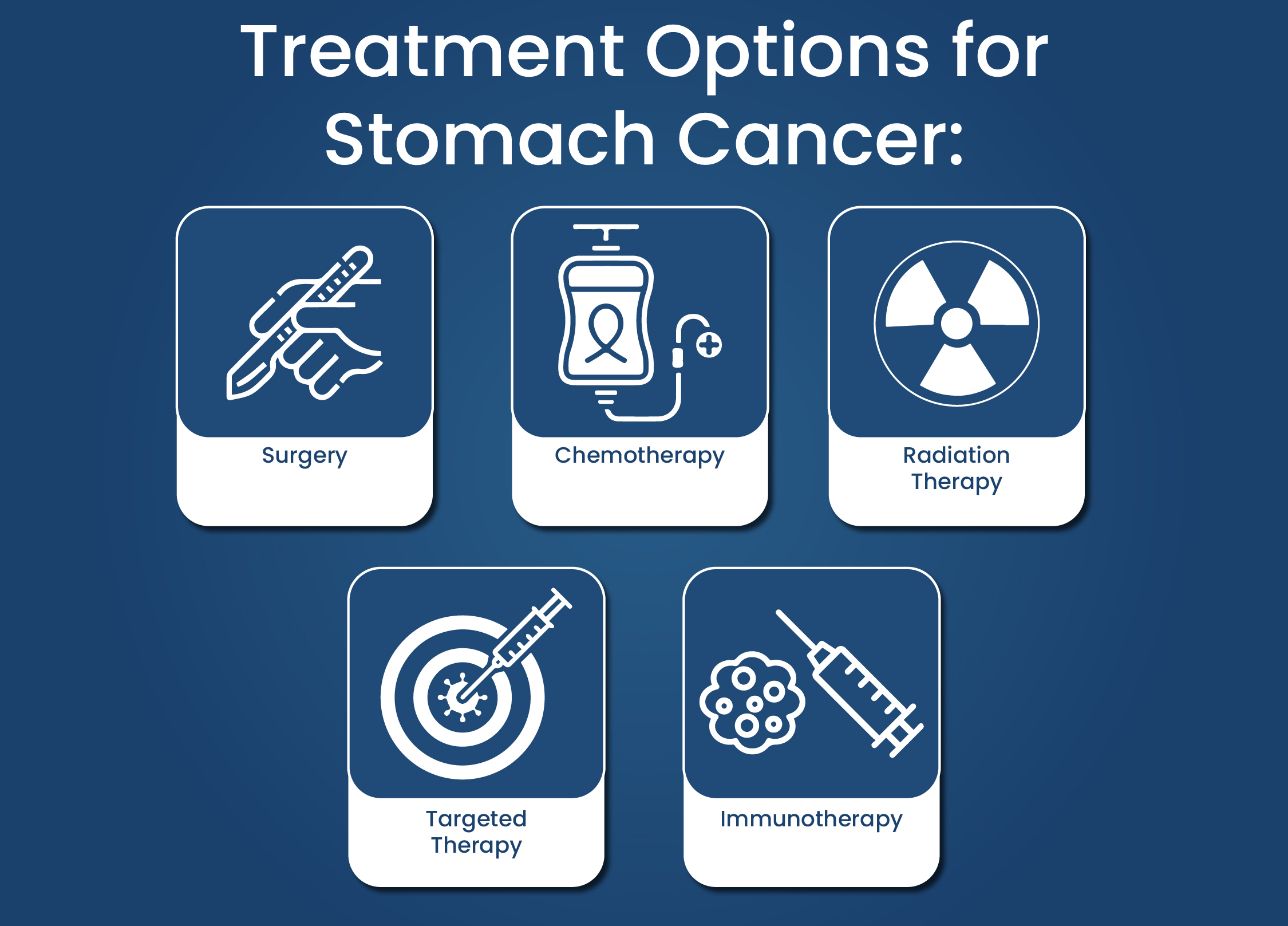
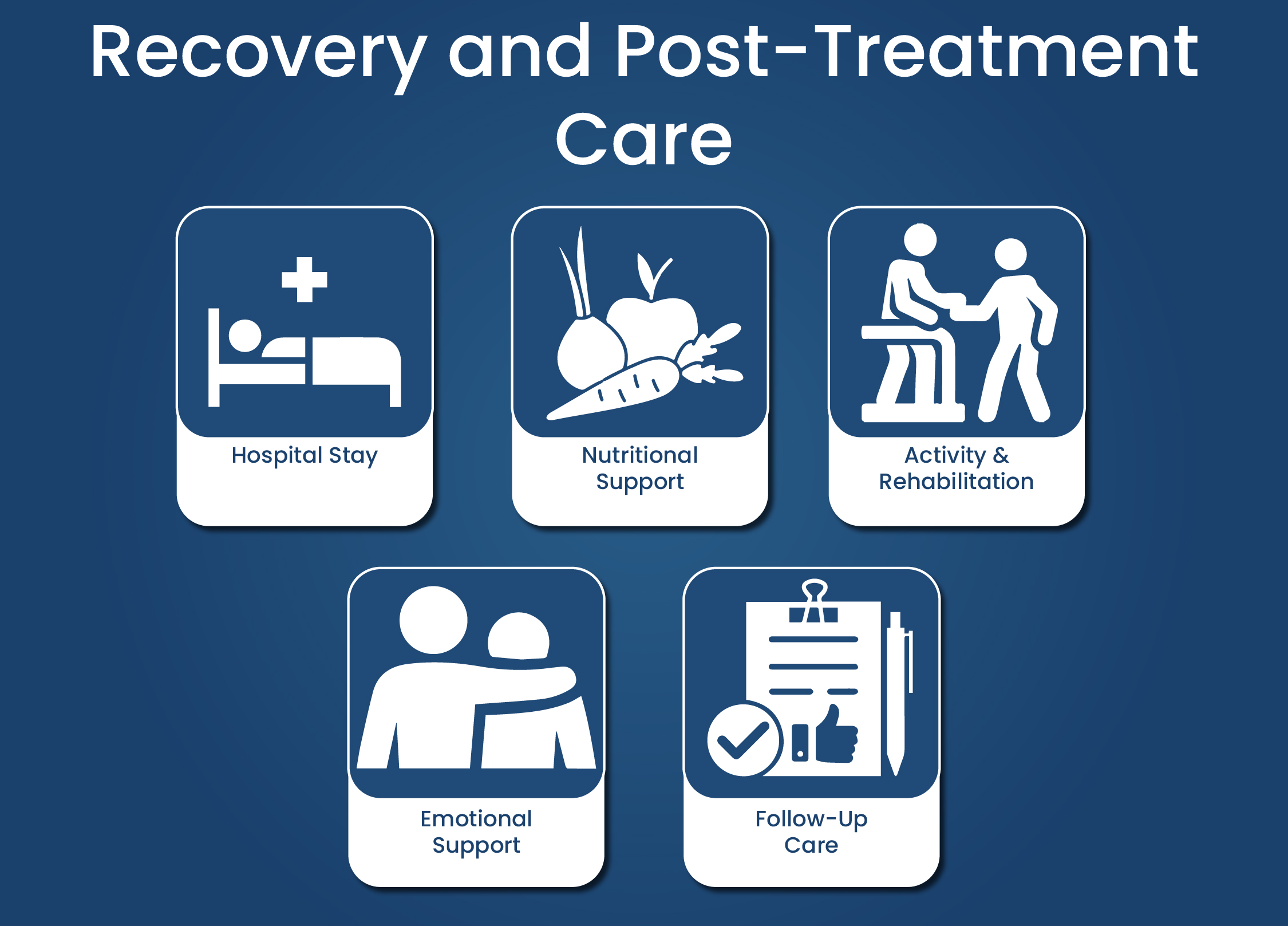
Recovery and Post-Treatment Care
Recovery after surgery or therapy requires medical and lifestyle support.
- Hospital Stay: Most patients remain in hospital for 7–10 days after surgery.
- Nutritional Support: Dieticians help patients adjust to smaller, more frequent meals and advise on supplements.
- Activity & Rehabilitation: Gentle exercise and physiotherapy aid faster recovery.
- Emotional Support Counseling and support groups help patients cope mentally.
- Follow-Up Care: Regular scans and check-ups monitor long-term health.
A smooth recovery is possible with the right guidance and long-term medical support.
When dealing with a life-threatening condition like stomach cancer, expertise matters as much as access to modern technology. Patients in Mumbai are fortunate to have access to some of the most advanced cancer care facilities and highly skilled specialists. Among them, Dr. Sanjay Sharma, a renowned stomach cancer surgeon in Mumbai, has built a strong reputation for offering comprehensive, patient-focused treatment.
Cancer treatment is constantly evolving. Dr. Sanjay Sharma has enhanced his knowledge through training and collaborations with premier institutes in India and internationally. This global perspective allows him to combine international best practices with local patient care, offering the most effective stomach cancer treatment in Bandra and Cumballa Hill.
Frequently Asked Questions (FAQs)
Can stomach cancer be cured?
Yes, especially if detected in the early stages. Surgery combined with other therapies offers a high chance of cure.
How long does it take to recover after stomach cancer surgery?
Recovery usually takes 4–6 weeks, with dietary and lifestyle adjustments.
Is chemotherapy always necessary?
Not always. It depends on the cancer stage and type. Your oncologist will recommend what’s best for you.
What are the common side effects of treatment?
Surgery may lead to smaller meal sizes and quicker satiety. Chemotherapy can cause fatigue or nausea, which are manageable with supportive care.
Can lifestyle changes lower the risk of stomach cancer?
Yes. Avoiding smoking, limiting alcohol, eating fresh fruits and vegetables, and regular health check-ups reduce risk significantly.